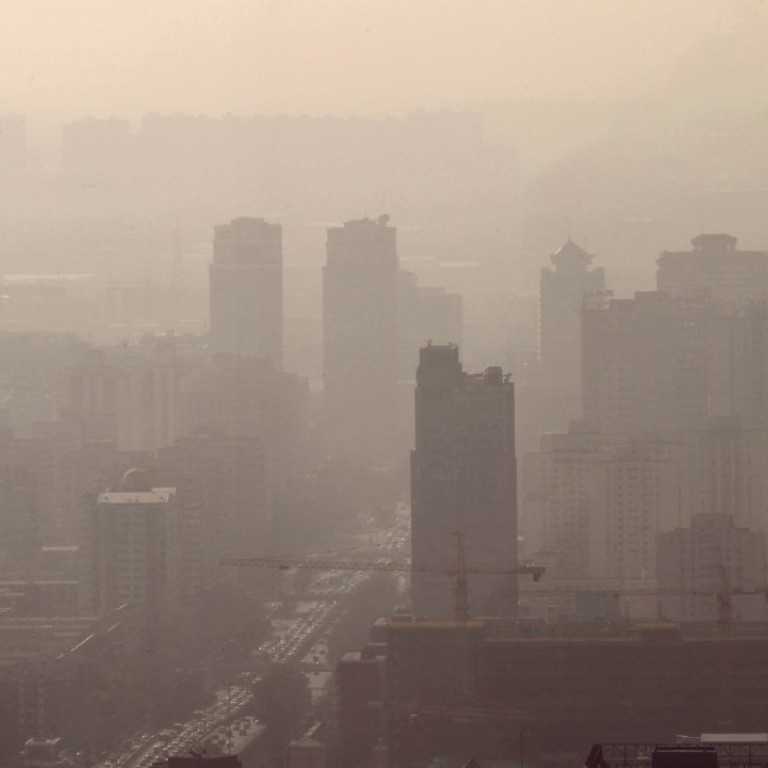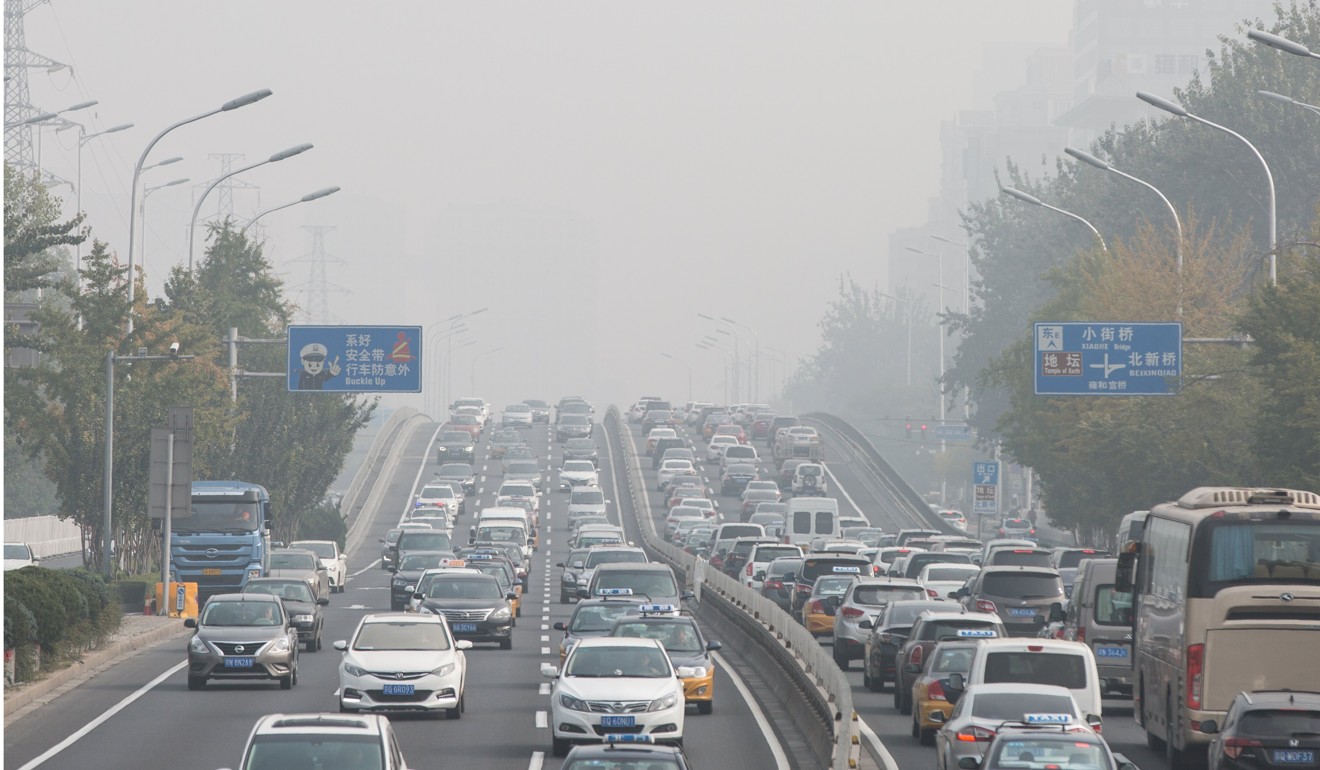
Something’s in the air as environment becomes new battleground for China’s cadres
After years of ignoring the costs of breakneck growth, officials are under pressure to take action – and their jobs and funding depend on it
Every month across China, local officials wait for the scorecard. They want to know how their cities, towns and districts rank – how well the economy is doing, but also how breathable the air is.
The places at the top of the rankings for monthly air quality are rewarded to the tune of millions of yuan. Those with the worst air have their government funding slashed, and the local cadres are summoned to explain themselves.
“[The officials] deeply regretted the low rankings,” a state-run newspaper in the eastern city of Jinan, Shandong, declared in a report on one of those interrogations. “They pledged to learn from the pain ... and take extraordinary measures.”
The ruling Communist Party’s efforts to clean up the country’s notoriously polluted air, rivers, lakes and soil have been stymied by its cadres, whose career prospects have for decades depended on their ability to drive economic growth.
But with environmental protection now a priority for the coming five years, Beijing is trying to change the mindset of putting growth first by judging its officials by a new measure – green targets.
Experts warn that some officials are avoiding the tough environmental work that is needed because it is too difficult to achieve or measure, while others resort to manipulating the data to please the leadership.
Christian Goebel, an expert on Chinese governance at the University of Vienna, said environmental protection was becoming a new battlefield for cadres, who used to fight for promotion based on economic achievements and preventing social unrest.
“Now we have a third measure,” Goebel said. “It’s not that one is more important than the others. If you don’t perform in a particular area, all the other success is deemed void.”
The high-profile campaign to tackle the choking smog that plagues many cities in China has seen air quality become one of the first environmental indicators with significant political consequences.
Air quality rankings are released every month by national, provincial and city authorities. In some areas, local leaders are questioned when the results are poor, in others they are hit with huge fines.
In its first attempt to link air pollution to local budgets, Shanxi province in the north last month awarded 9.1 million yuan (US$1.37 million) to Datong for making the biggest improvement to air quality in October – and fined Jincheng 15.9 million yuan for having the worst air.
At a meeting on the pollution fight in November, Minister of Environmental Protection Li Ganjie stressed the need to “pass on the pressure” to local cadres, adding that the central government was having difficulty meeting key targets this year.
“The pressure has definitely increased,” Goebel said. “The central government now puts pressure on provincial leaders, the provincial leaders put pressure on the city leaders, the city leaders put pressure on the county leaders and so on.”
Analysts say a growing number of officials brought down for allowing factories to pollute also served as strong warnings for the entire bureaucracy.

Revisions to the environmental protection law passed in 2014 included penalties for officials who turn a blind eye to violations of the law.
Disciplinary teams have also been sent across the country to inspect environment protection work since July last year, resulting in more than 12,000 officials being punished.
The campaign has had a cool reception in some places. One environmental audit volunteer in Hebei province, who declined to the named, said he had heard local environment officials complaining about having to work overtime and cancel their holidays to tackle problems identified by the government inspectors.
Mainland media have also reported that some cities shut down factories ahead of inspections, whether the companies were complying with environmental rules or not.
“That’s one thing when these ministerial-level investigative teams show up locally, and punish industries,” said Daniel Gardner, an expert on China’s environmental policies at Smith College in the United States. “But when they punish officials, that’s something new ... That is making a visual mark on the official’s attitude.”
Environmental protection has become one of President Xi Jinping’s signature campaigns. During his 3½-hour speech at the party congress in October, Xi mentioned “environment” and “ecological civilisation” more than 40 times, but there was no mention of gross domestic product growth targets.
“He is saying that over and over and over again, which shows you how difficult it is,” Gardner said. “Local officials, by habit, are growing the GDP ... It’s a challenge to suddenly change that mindset. That’s precisely what this campaign is.”
The government has also said it will make cadres’ track record on the environment a more important factor when deciding who to promote.
China’s cabinet, the State Council, released guidelines to this effect in December last year on the so-called green development assessment used to rate the performance of local administrations. More than 90 per cent of it covers environment-related issues, while less than 10 per cent is to do with GDP growth.
A new audit scheme that will take effect nationwide next year meanwhile requires changes in natural resources to be assessed alongside economic assets when a local official leaves office.
But despite the concerted effort from Beijing, it could take a long time before cadres throw themselves into environmental work in the same way they have embraced the task of achieving economic growth, according to analysts.
Ma Jun, director of environmental campaign group the Institute of Public and Environmental Affairs, said the public should be involved in assessing how well officials are doing on protecting the environment, otherwise they could easily exploit the system and cover up damage.
He added that officials were still expected to drive growth.
“In theory, environmental work may carry bigger weight than GDP growth when it comes to rating performance, but in practice, officials are still bound by powerful economic targets,” Ma said. “The two areas are still in fierce competition.”
For years, many Chinese officials have ignored the environmental cost of growth and seen the long-term, complex efforts involved in tackling the pollution problem – with results that are more difficult to measure than GDP growth – as too much of a challenge.
Anna Ahlers, a China scholar at the University of Oslo, said that during her research trips to the affluent Zhejiang province, officials mentioned the difficulty of meeting environmental goals.
“They say for GDP, we feel we have more influence on them,” Ahlers said. “With air pollution, of course we can do a lot things, but it’s much harder, there are much more actions involved.”
And as pressure mounts to meet both growth and environmental targets, there is a risk that some will take extreme measures to achieve them – as happened in a high-profile case in Xian, Shaanxi province, last year. Three officials there were detained after equipment at an air quality monitoring station was found stuffed with cotton to filter the air being read and make the data look better. It worked for a few months, but was eventually uncovered by inspectors.

